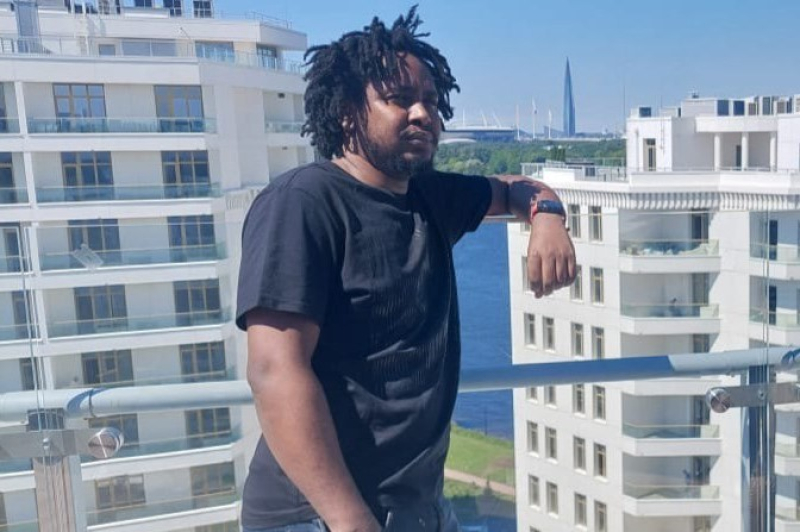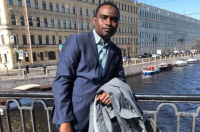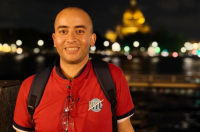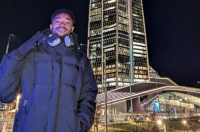Hi, nice to talk to you today.
Hello, thanks for having me. I am very eager to talk to you today.
Please introduce yourself to our readers.
I am Mikael Jima from Ethiopia, currently a PhD student in chemical engineering at ITMO.
That’s great! Tell us something about your hometown.
I grew up in Adama (formerly Nazareth), which is around 100 km away from the capital city of Ethiopia – Addis Ababa.
And where did you study before joining ITMO?
I finished high school and pre-high school there. Thereafter, I completed my Bachelor’s degree at one of Ethiopia’s most prestigious universities – Bahir Dar University. I pursued a Master's degree at the Moscow State University of Design and Technology until 2020. Then I returned to my country and worked as a lecturer for a few years.
When did you join ITMO as a PhD student?
I started my PhD this year, after serving as a lecturer at a university in Ethiopia for three years.
What motivated you to pursue a PhD in Russia?
The answer is quite obvious – because I had already lived in Russia before and I was familiar with the education system here. But there is a story that inspired me to come here in the first place. A professor at my high school introduced me to a chemist called Sergey Lebedev, the inventor of the world’s first commercially viable synthetic rubber. I was fascinated by him and decided to learn more about him. I discovered that he is a Soviet scientist and since then, I have been a big fan of Russian science and technology.
That’s fascinating! And why ITMO?
For my PhD project, I wanted to work on auxetics. ITMO’s chemistry laboratories fascinated me as they work intensively with new materials. I also had a little discussion with my then-would-be supervisor who liked my idea and backed me to apply to ITMO. And that’s how I got enrolled here!
That's pretty interesting! I would love to know more about the new material that you are trying to produce.
Materials can be classified into two types based on their Poisson’s ratio, or stretchability – conventional and non-conventional (auxetics). Unlike conventional materials, when you apply force to an auxetic material or stretch it, its length, as well as width, increases. Usually, such materials are 3D-printed, but I am planning on producing them through electrospinning followed by engraving or lithography. I am planning to use an alloy of caprolactam and polyvinyl acetate. Such materials will have a wide range of applications in medical science, like wound healing, tissue regeneration, and prosthetics.
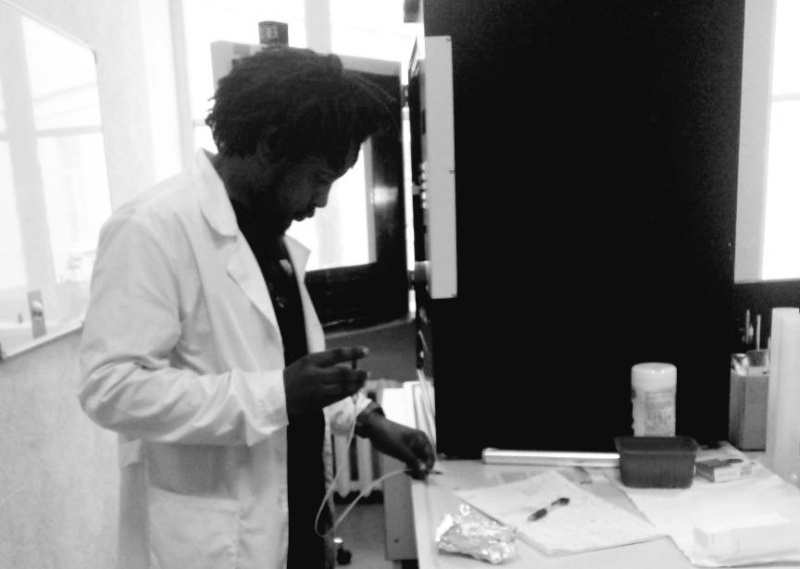
Mikael working in a laboratory at ITMO. Photo courtesy of the subject
I wish you success in your endeavor. How would you describe your PhD life here?
It is not hard for me, as I had already studied in Russia before. Unlike new students, language is not a problem for me. However, I arrived late in St. Petersburg (December 2023) due to some family issues, which resulted in me lagging behind a bit. So, I had to do some catching up in the first few weeks. But now, everything is settled and I am enjoying my life here.
That's amazing. How are you managing your finances?
Since I came here, I have been extremely busy with lab work and studies. So, I haven’t got the chance to find a job yet. But I am open to work, probably next year. I want to dedicate the first year of my PhD to completing most of my lab work. That way I will have more time and freedom in the following years to work and do other useful things.
What would you say is the monthly budget for a PhD student in St. Petersburg?
It depends on every individual’s habits and lifestyle. Comparing Moscow to St. Petersburg, I’d say living in St. Petersburg is cheaper than in Moscow. If a student lives in a dormitory or ITMO apartment and chooses a not-so-extravagant lifestyle, then 20,000 rubles per month would be enough in my opinion.
Are you living in a dormitory or an apartment?
I am living in one of ITMO’s dormitories located on Belorusskaya St. 6. It is a pretty nice place. I am living alone in a block-type room, so it's very convenient and peaceful. The dormitory is equipped with modern amenities, which makes it a very comfortable accommodation.
What do you think about St. Petersburg as a city?
It is a royal city! It is regarded as the northern capital of Russia. Compared to Moscow, it is smaller in size and has fewer international places or events, but I like it more. Mostly it's because of St. Petersburg’s beauty and grandeur. The Neva River is a jewel for this city. Moreover, St. Petersburg is not as crowded as Moscow, making it a better choice to live, at least for me.
Which mode of transport do you frequently use here?
I prefer traveling by bus. Metro is also a great option, but it's far from my dormitory. Instead, there are numerous bus stops nearby, making buses a more convenient mode of transport for me.
That's nice! So what are your plans after getting your PhD?
Before I came here, I was a lecturer at a university. After finishing my PhD, I plan to return to Ethiopia and continue working as a scientist and a lecturer.
Do you have any advice for future PhD students at ITMO?
The first advice is to precisely choose the university, the specialty, and the topic of their dissertation. A good PhD is based on these choices. The choice of supervisor is also a very important step as it can determine the success of your PhD work. The second one is to learn the language. In Russia, you cannot live comfortably without knowing the language at least to some extent. Nowadays, it's very easy to learn a foreign language and I would recommend everyone to learn some Russian before coming here.
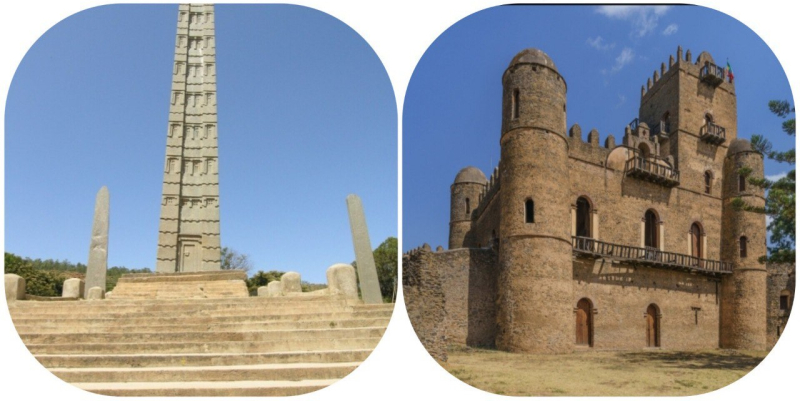
A collage of Mikael’s top places to visit in Ethiopia. Photo courtesy of the subject
Do you want to add something else?
I would urge the readers to consider visiting my country, Ethiopia. It is a country with a lot of history that dates back to more than 2,000 years. Ethiopia is also the only African nation not to be colonized by westerners. Because of that, we have been able to preserve our history and heritage to a great extent. There are nine UNESCO World Heritage sites in my country, out of which the following three are my top picks:
-
Rock-Hewn Churches in Lalibela: one of the most sacred churches to the Christians of Ethiopia.
-
Obelisk of Axum: an approximately 23m structure carved out of a single rock.
-
Fasil Ghebbi: a 17th-century fortress that was home to the famous Emperor Fasilides
I can guarantee that you will really enjoy traveling to Ethiopia. I welcome you all!
